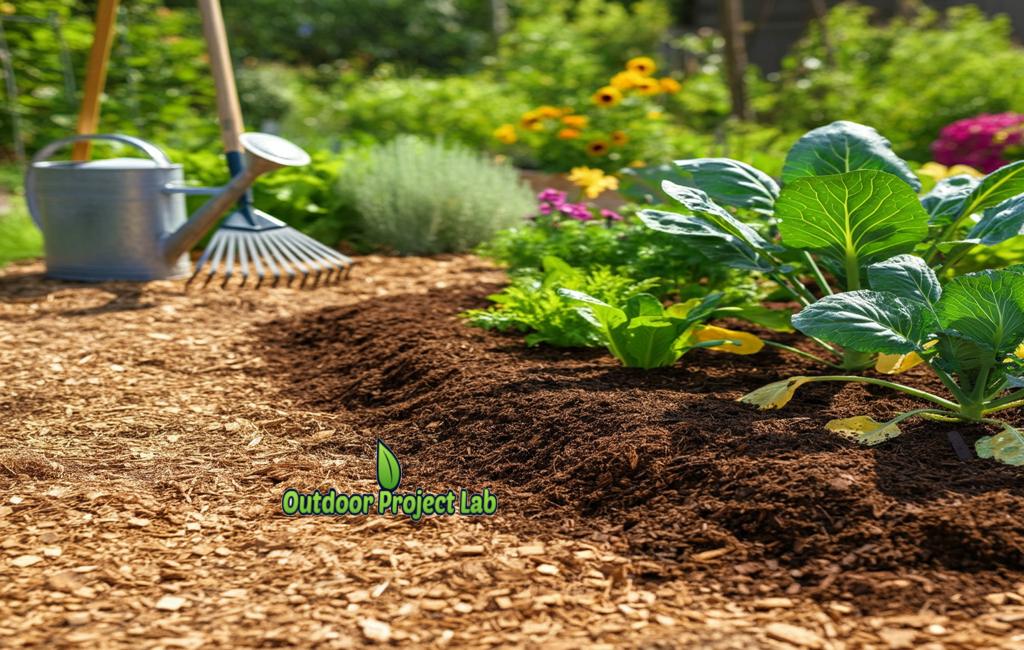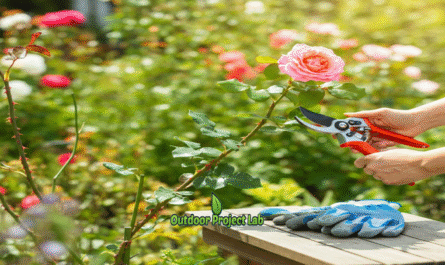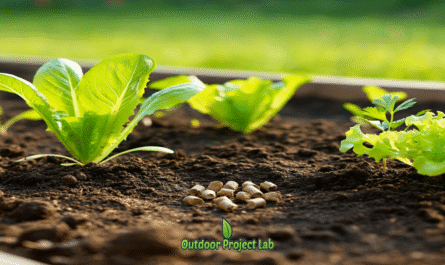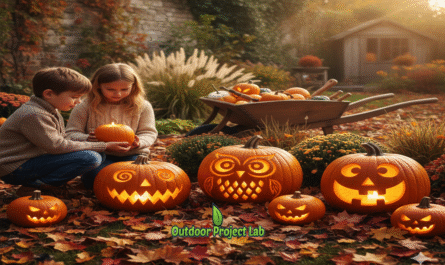Mulching is like putting a cozy blanket on your garden bed. It is a layer of material you spread over the soil. This simple step helps protect your plants and makes your garden healthy and happy. It’s one of the best things you can do for your home garden.
Why Garden Mulch is a Game-Changer
Adding a layer of garden mulch brings many great benefits to your plants and soil. It’s a key part of sustainable garden care that saves you time and effort. Let’s look at why it’s so helpful.
Better Soil Health
One of the biggest wins from mulching is improved soil health. When you use organic mulches like wood chips or straw, they slowly break down. This process adds rich organic matter to the soil. Think of it as a slow-release meal for your garden, providing helpful compost and nutrients over time. Healthy soil means stronger, more vibrant plants.
Excellent Moisture Retention
Does it feel like you are always watering your garden? Mulch can help with that. A good layer of mulch acts like a shield, slowing down how fast water evaporates from the soil. This means the ground stays damp longer, so you don’t have to water as often. Better moisture retention is great for your plants and your water bill.
Natural Weed Control
Tired of pulling out pesky weeds? Mulching is a fantastic method for weed control. By covering the soil, mulch blocks the sunlight that weed seeds need to sprout. The few weeds that do manage to push through are often weaker and easier to pull out. This is a core practice in organic gardening because it reduces the need for chemical weed killers.
Keeps Soil Temperature Just Right
Mulch also helps control the soil’s temperature. In the summer, it keeps the soil cool, protecting plant roots from extreme heat. In the winter, it acts as an insulator, protecting them from the cold. This steady temperature reduces stress on your plants, helping them grow strong all year.
Choosing the Right Mulch for Your Garden
There are many types of mulch to choose from. They mainly fall into two groups: organic and inorganic. To get started, you might need some simple tools. Check out our guide on Gardening Tools for Beginners on a Budget for some great ideas.
Here is a simple table to help you decide which mulch is best for you:
|
Type |
Benefits |
Best Use Case |
|---|---|---|
|
Wood Chips |
Lasts long, looks neat, breaks down slowly |
Around trees, shrubs, and pathways |
|
Straw/Hay |
Great for retaining moisture, adds nutrients when it decomposes |
Vegetable gardens and new lawns |
|
Grass Clippings |
Free, adds nitrogen to the soil |
Around established vegetables and flowers |
|
Shredded Leaves |
Breaks down quickly, rich in minerals, attracts earthworms |
All garden beds, especially vegetable gardens |
|
Gravel/Stones |
Permanent, good for drainage, comes in many colors |
Around plants that like heat and dry soil, paths |
|
Plastic Sheeting |
Excellent for warming soil and stopping weeds |
Vegetable gardens, especially for warm-season crops |
For more detailed information, the University of Minnesota Extension offers great insights into the benefits of mulching.
How to Apply Mulch Correctly
Applying mulch is easy. First, make sure your garden bed is weeded and the soil is moist. Then, spread a layer of mulch that is about 2 to 4 inches deep. Be careful not to pile mulch right up against the stems of your plants or tree trunks. Leave a small gap to prevent rot and allow air to flow. Using quality tools can make this job much easier; some gardeners prefer the precision of Japanese Gardening Tools.
This practice is a big part of eco-friendly gardening. It reduces waste by using yard materials like leaves and grass clippings. For more ideas on being green in your garden, see our Eco-Friendly Garden Tools Guide.
Start Mulching Today
Adding mulch is a simple, powerful step toward a healthier and more beautiful garden. It improves soil, saves water, and keeps weeds away, making your gardening journey more rewarding. You can create a thriving outdoor space with less work.
Ready to learn more easy and effective gardening tips? Explore home page for more guides and inspiration to help you grow the garden of your dreams.




